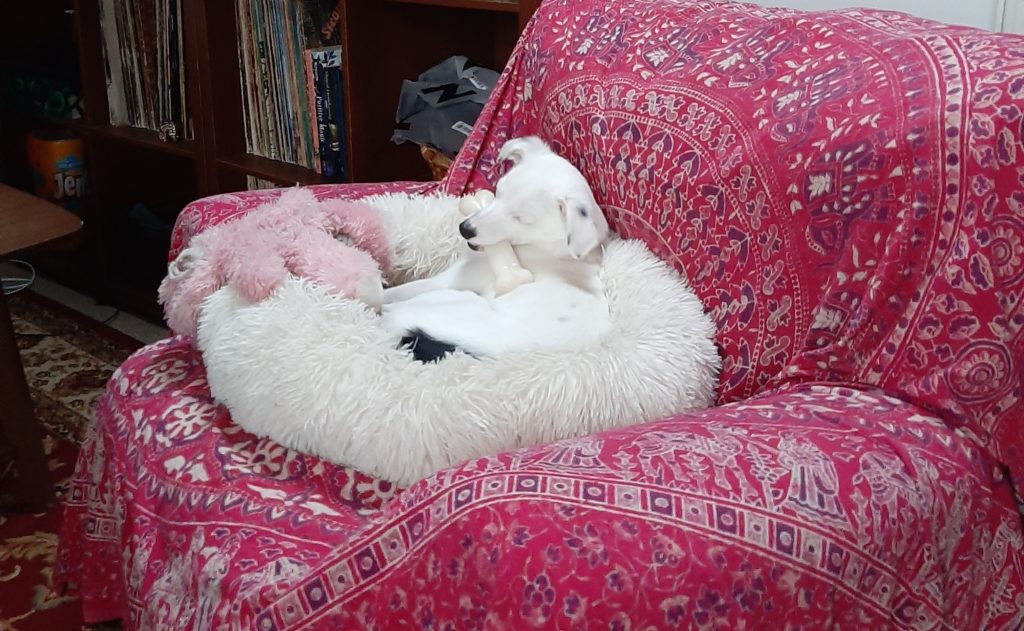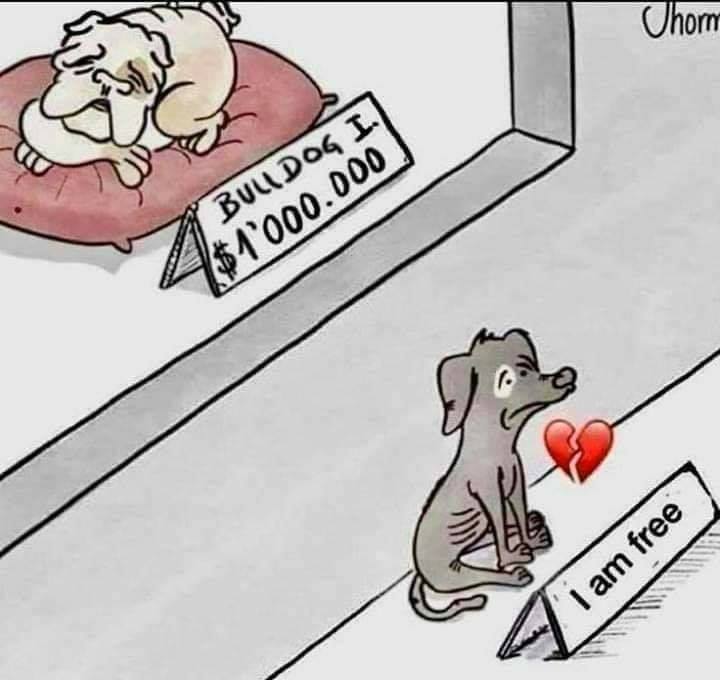
In the UK, the demand for “purebred” dogs and puppies has risen so sharply under COVID that “breeders” are unable to keep up and dog-knapping has skyrocketed. Dogs are literally being stockpiled for the holiday shopping season. In fact, some criminal operations have abandoned the drug trade for the more lucrative dog trade. Purpose-bred and stolen dogs can bring in thousands of pounds apiece to well-meaning “customers” who have been socialized to see living persons as commodities.
Meanwhile, millions of dogs and cats suffer and die for want of home in nearby Eastern Europe, Eurasia, and parts of the developing world where the long shadows of war and colonialism continue to wreak havoc on the world’s most marginalized. In a capitalistic world in which the lifeworld becomes commodified, animals living without homes outside of Britain’s kingdom are thought bottom-shelf at best and discards bound for disposal at worst.
I adopted my beautiful intersex and deaf dog Mishka with her different colored eyes and extra toes from Bulgaria this summer after my beloved cat Keeley died. I love her quirks–they are what makes her an individual and not a mass-produced product of consumption. Unfortunately, postmodern life encourages us to construct our identity through the things we buy, own, and display. This is bad news for quirky dogs like Mishka. Indeed, dogs are objectified in the cruelest of ways in order for humans to express themselves with canine commodities.
Capitalism encourages us to charge fashionable breeds to our credit card but abandon unfashionable mixed breeds to the gas chamber. Ironically, even pure breeds find themselves in the disposal stage of this consumption cycle, often when their expression of individualism clashes with their object status (for instance, when they grow out of puppyhood or exhibit “bad behavior”).

The nexus of identity, consumption, and right-to-life takes on new meaning in Britain’s current political situation. Identity is more than what we consume, it is also defined by the borders of the nation-state. Britain’s exit from the EU has highlighted that the British identity is perceived by the dominant class to mean native-born, Anglo, and white. This identity is also perceived to be under threat by non-British “others” who are thought to challenge the economic privileges of the dominant class.
It might not surprise readers to know that the period of intensified British dog breeding also coincided with its period of imperialism. Defining “us” and “them,” “civilized” and “savage” was exemplified in bordermaking, colonial expansion, and “breeding.”
As outsiders and “mutts,” curs like Mishka are at a distinct disadvantage compared to “British” dogs and cats who are in such high demand they are now being stolen for resale. Not only are they rendered “foreign,” but they face borders now shut to “others.” It is not clear how animals from Romania, Bulgaria, Greece, and other parts of the EU will fare once free movement is brought to a halt. Rescue operations in these countries have relied on adoption in Britain to save thousands of lives each year. Brexit’s nationalistic anti-immigration platform not only means immense suffering for human “others,” but also for nonhuman “others.”
When capitalism is given unrestricted reign over the lifeworld, the sad result is that inequality festers. Identity divides, and separation becomes justification for unequal distribution of resources and care. Although less recognized, Nonhuman Animals are perhaps the most vulnerable to these politics of the nation-state. What if we defined ourselves not by our nationality and not by the things we consumed? This is the type of radical work we need to engage to truly challenge the injustices facing dogs, cats, and other animals.
Readers can learn more about the nationalist politics of animal rights in my 2021 publication,
Animals in Irish Society: Interspecies Oppression and Vegan Liberation in Britain’s First Colony. Receive research updates straight to your inbox by subscribing to my newsletter.